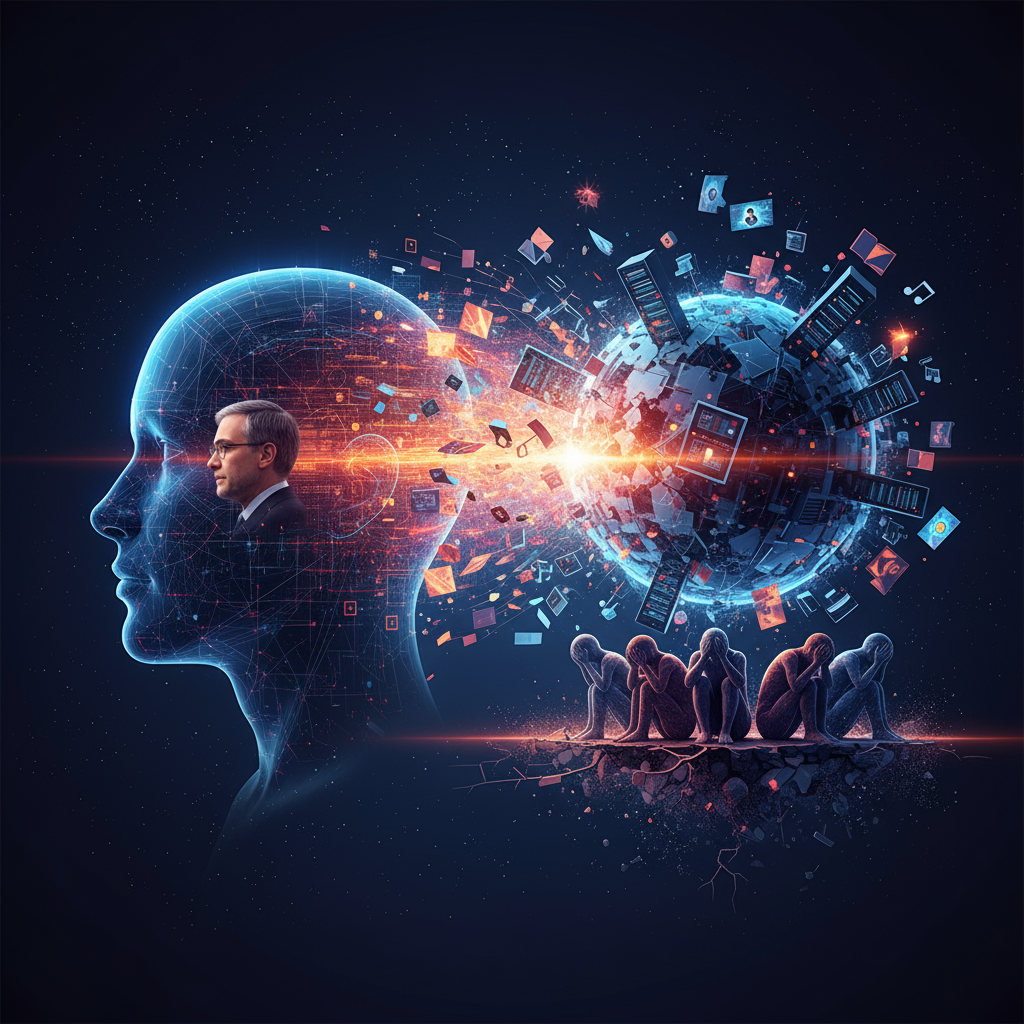Sam Altman and the Copyright Conundrum: Can We Go Backwards?
The digital landscape is a battlefield where innovation clashes with established norms, and few figures embody this struggle more prominently than Sam Altman. From his audacious leadership at OpenAI to the controversial rollout of technologies like Sora 2, Altman has become a lightning rod for debate. A recent Reddit discussion, sparked by an article provocatively titled “It’s Sam Altman: the man who stole the rights from copyright. If he’s the future, can we go backwards?”, throws a spotlight on the seismic shifts AI is enacting on intellectual property.
This isn’t merely an academic discussion; it’s a profound examination of the future of creative work, individual ownership, and the very fabric of our digital society. Is Altman truly “stealing” rights, or is he merely accelerating an inevitable evolution? And if the latter, what does that mean for artists, writers, and creators across the globe who rely on copyright for their livelihood?
The AI Engine: Data Thievery or Fuel for Innovation?
At the heart of the “stolen rights” accusation lies the training data used by large language models (LLMs) and generative AI like OpenAI’s Sora. These powerful systems learn by ingesting vast quantities of information from the internet – text, images, videos, music. The problem, as many critics passionately argue, is that much of this data is copyrighted material, used without explicit permission or compensation to the original creators.
Imagine a painter who meticulously copies thousands of masterpieces to learn their craft, then starts producing original works in a similar style. Is that theft? Perhaps not directly. But what if that painter then sells their “original” work, having never paid a penny to the artists whose work they so thoroughly absorbed? This analogy, though imperfect, highlights the core ethical and legal dilemma. AI models don’t “copy” in the traditional sense, but they synthesize and generate based on patterns learned from copyrighted works, often in ways that feel indistinguishable from human-created content.
The defense often put forth by companies like OpenAI is “fair use” – a legal doctrine that permits limited use of copyrighted material without acquiring permission from the rights holders, for purposes such as criticism, comment, news reporting, teaching, scholarship, or research. However, the legal boundaries of fair use in the context of AI training are still fiercely contested, with lawsuits from artists, authors, and news organizations piling up. The sheer scale of data ingestion by AI systems pushes the traditional understanding of fair use to its breaking point.
The Creator’s Quandary: Disappearing Value and Diminished Control
For individual creators, the rise of powerful generative AI presents an existential threat. Consider an illustrator whose unique style has taken years to cultivate. An AI can now be prompted to generate images “in the style of [illustrator’s name],” potentially diluting their brand, devaluing their work, and making it harder for them to secure commissions. The same applies to writers, musicians, and even filmmakers as tools like Sora 2 promise hyper-realistic video generation from simple text prompts.
The core issue is control and economic viability. If AI can produce high-quality content indistinguishable from human effort, and do so at a fraction of the cost, what happens to the human creators? Copyright was designed to protect the economic rights of creators, ensuring they could benefit from their ingenuity. If AI can effectively bypass this protection by learning from and then mimicking without direct infringement, the entire economic model of creative industries could collapse. This isn’t just about Sam Altman; it’s about the fundamental promise of a creative career in the age of artificial intelligence.
The “Can We Go Backwards?” Dilemma
The question posed in the Reddit post – “If he’s the future, can we go backwards?” – is perhaps the most poignant. In a world hurtling forward with AI development, turning back the clock seems an impossible fantasy. The genie is out of the bottle. The technology exists, it’s being developed at breakneck speed, and its capabilities are expanding daily.
Trying to “go backwards” would likely involve attempts to heavily regulate AI development, perhaps requiring strict licensing for training data, or even implementing “opt-out” mechanisms for creators. While such regulations might slow down development or force AI companies to reconsider their data acquisition strategies, they wouldn’t eliminate the technology itself. The challenge isn’t to stop AI, but to integrate it equitably and ethically into our society. This means grappling with difficult questions about compensation, attribution, and the very definition of originality in a world where machines can “create.”
Navigating the AI Frontier: Towards a New Understanding of Rights
The clash between Sam Altman’s vision of aggressive AI development and the established framework of copyright highlights a critical juncture for humanity. We cannot afford to simply throw up our hands and declare copyright obsolete. Instead, we need innovative solutions that acknowledge the power of AI while safeguarding the rights and livelihoods of human creators.
Perhaps this involves new models of collective licensing, where creators are compensated for their work being included in AI training datasets. Or maybe it requires robust digital watermarking and provenance systems to clearly identify AI-generated content and attribute origins. The legal system, too, will need to evolve at a pace previously unseen, as courts wrestle with definitions of “authorship” and “infringement” in the AI age.
Sam Altman and figures like him are indeed pushing us into the future, whether we’re ready or not. The question isn’t whether we can go backwards, but how we can move forward thoughtfully, ensuring that the benefits of AI are shared broadly, and that creativity remains a valued human endeavor, not just a data point for an algorithm. The discussion has begun, and the stakes for the future of creative work couldn’t be higher.
